Philippine partners deliver strong work despite El Niño
For Filipino farmers April 2023 marked the return of El Niño, a long period of persistent drought. The drought is sure to continue until February 2024. All the more reason for Solidagro's partners to put agroecology forward as a more resilient agricultural and food supply system. A key strategy is to start up agroecological educational farms that strengthen the knowledge and skills of farming communities.

Our partner CDPC (Center for Development Programs in the Cordillera) works in the northern Cordillera region to strengthen indigenous communities to defend their right to food and the right to defend their land. In 2023, the center gave training courses on the use of the native paswik plant as a biological control agent against insect infestations. As with us, conventional farmers in the Philippines use plenty of chemical pesticides, for which they are dependent on multinationals.
The start-up of a full production line to process pumpkin into noodles and preparing them for sale is promising for the farmers who will supply the ingredients. Like producers, they will generate an extra income. The production got finished in time for the launch in January at the city festival of Sagada. In order to do so, CDPC worked together with a local chef to bring about a delicious dish.
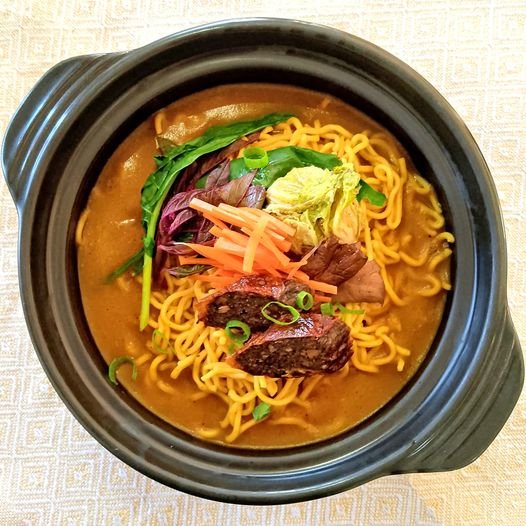
Our work in the Cordillera is possible thanks to the Province of East Flanders, with whom we will be working for 30 years in 2024.
Agroecology for the farmers of the future
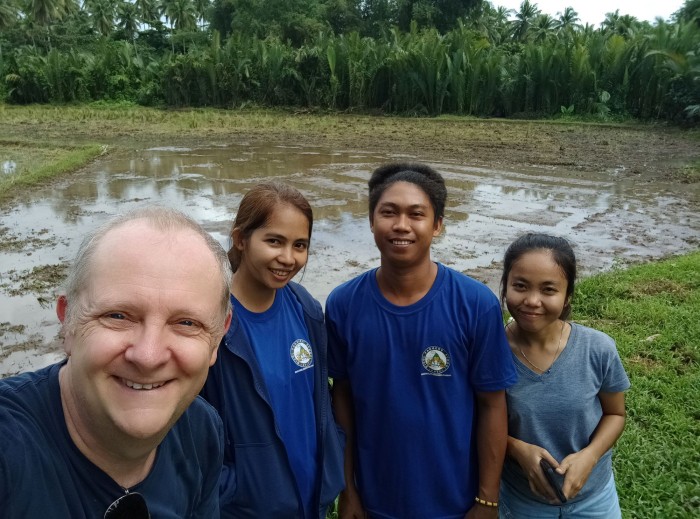
Through the Bicol Farmers School, an educational farm where young farmers undergo a three-month agroecological training course, CCNCI (Climate Change Network for Community-based Initiatives) supported 38 young people last year. They mostly come from farming families and are chosen from nearby villages to follow the training course, to be able to share the knowledge with the whole community afterwards.
During a work trip we spoke with Jake Abila, former student of the Bicol Farmers School. He is an ambassador for agroecology and is proud of his education. Abila: "You need patience to convince farmers of agroecology, but when they realize that conventional agriculture has many negative effects, it gives strength to carry on.”
El Niño strikes
The weather phenomenon El Niño entails higher temperatures and faster evaporation of water. Water sources that are essential for agriculture dry up. The shortage of water causes smaller plants and a reduction of the harvest of up to 30%. When it does rain, it is accompanied by floods due to the lack of sustainable methods of water management. Furthermore, El Niño can also affect quality of the soil by reducing the number of micro-organisms essential for soil fertility. The result is desertification of the soil.
El Niño is also affecting livestock farming at the same time. Animals find less water and food and become malnourished. Some animals do not survive this.
Farmers in the west of Visayas and in the Zamboanga peninsula are most affected by El Niño. They have lost around 1.8 million euros by the end of January 2024 (source: Department of Agriculture (DA)). It would involve 2,600 farmers cultivating more than 2,000 hectares of land, mainly for rice. A total of 41 provinces have been affected (read more) Some rice farmers are waiting for El Niño to pass, while others are switching to vegetable cultivation, which requires less water.
Importance of local rice varieties and the fight against Golden Rice
Rice is the most important food in the Philippines. The (diversity of) rice someone serves or eats says something about their economic status. Therefore, in the fight against hunger and malnutrition, which the country is strongly facing today, it is of utmost importance.
MASIPAG, our partner since 2020, is setting up test farms across the country where farmers grow, test and distribute rice varieties. This has already brought them 50 varieties, which are climate-resistant, resilient to long periods of drought such as El Niño and adapted to the region where they are grown. Ownership of their rice cultivation is for farmers a response to the government's heavily pushed GMO Golden Rice, which we previously wrote about.
Ownership of rice seeds in all their diversity is a farmers' response to the government's heavily pushed GMO Golden Rice
In 2023, MASIPAG struck a major blow by demanding a 'writ of Kalikasan' in court in relation to the commercial cultivation of genetically modified rice and eggplant (more info here). A ‘writ of Kalikasan’ is a legal instrument that protects citizens from environmental damage that endangers life, health or property. The court agreed to further investigate the harmful effects and start a trial in which supporters and opponents of GMOs will take the floor. Until then, commercialization is on hold.
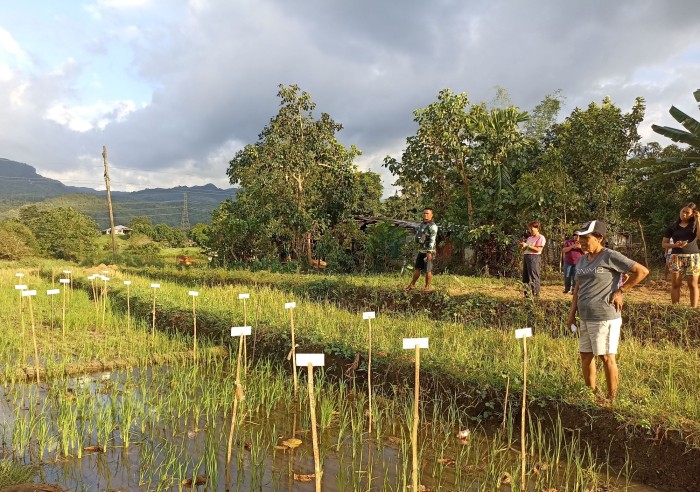
Self-sufficiency in the outskirts of town
Since 2022, we support agriculture in the outskirts of town. PNFSP (Philippine Network of Food Security Programmes) works around agroecology with vulnerable families on the outskirts of metropolitan Manila. Local communities in Bagong Silangan, San Roque and Commenwealth started eight organic vegetable gardens in 2023, providing healthy food for 195 families. Besides food supply, the gardens are also important places for the community to come together.
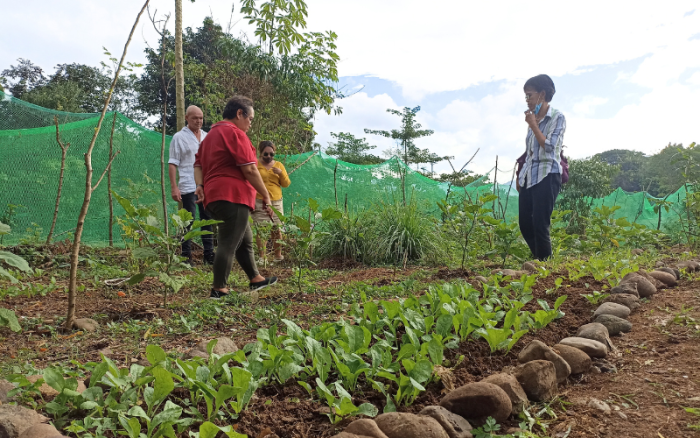
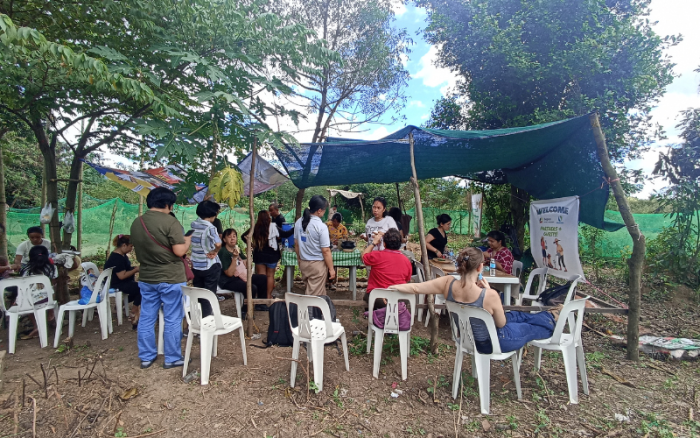
In a new project with the G-STIC climate program of the Flemish government, we are involving the IBON research institute to provide a stronger scientific basis for the promotion of agroecology. This way we examine how agroecology can promote resilience to climate change, what steps are required for the transition to agroecology and what government policy is needed to promote that transition.
Lastly, the national network Agroecology X organized 98 agroecological fairs for the general public, where farmers and producers sold their organic food and where both professionals from the agroecological field and consumers could attend workshops.
Look ahead
In 2024, PNFSP will expand its work around agriculture and community support in the outskirts of town. The Agroecology X network will create more exchanges with networks in other countries. We will stimulate synergy with other Filipino partners of Belgian NGO’s, such as the partners of Entraide et Fraternité, which also works around agroecology.


